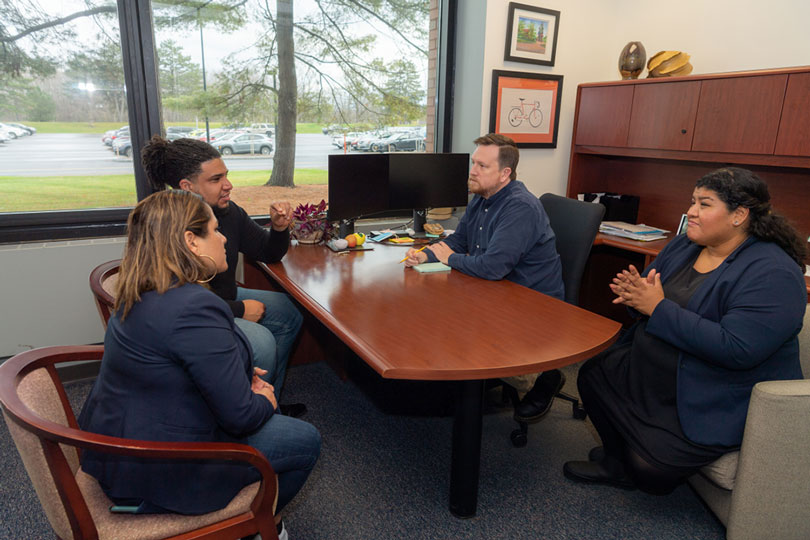RIT’s National Technical Institute for the Deaf offers five certificate programs in American Sign Language interpreting
Matthew Sluka/RIT
RIT’s National Technical Institute for the Deaf is offering five certificate programs in American Sign Language interpreting.
To enhance the skills of interpreters in the field, Rochester Institute of Technology’s National Technical Institute for the Deaf now is offering five certificate programs in American Sign Language specialties.
The programs are:
- Healthcare Interpreting provides specialized professional development to ASL/English interpreters in the area of healthcare interpreting, and employs innovative teaching by nationally recognized healthcare experts combined with practical application within healthcare environments.
- Deaf Interpreting trains Deaf professionals to interpret in a variety of discourses: educational, international, legal, medical, mental health, business, Deaf-Blind Protactile, and government settings.
- Educational Interpreting provides specialized professional development to ASL-English interpreters working in educational settings, and employs innovative teaching by experts in Deaf education and educational interpreting.
- Trilingual Interpreting provides professional specialized development for trilingual interpreters and aspiring trilingual interpreters with fundamental tools that contribute to their growth as interpreters and help them build skills for their trilingual work. Participants will practice their skills in bilingual interpretation between ASL and Spanish, English and Spanish, and ASL and English. In parallel with existing modules, this program offers supplemental content for participants who are fluent in Chinese (Cantonese or Mandarin).
- Signed Language Translation creates translators who possess the knowledge and skills to be effective members of the profession. With its specific focus on Deaf translators, the training fills a gap in the discipline of Translation Studies. The goal of the program is to cultivate Deaf translators, CODA (Child of Deaf Adults) translators, BIPOC (Black, Indigenous People of Color) translators, and hearing sign-language translators who will contribute to the development of translation studies and the advancement of translators.
“We are excited to be able to provide these certificate programs to help professional interpreters enhance their skills and sub-specialties,” said Keith Cagle, chairperson of NTID’s ASL and Interpreting Education department.
NTID is among the country’s first established formal ASL interpreter training programs. In addition to these certificate programs, NTID offers both a bachelor’s degree in American Sign Language-English interpretation, and a master’s degree in health care interpretation.
For more information on these programs, go to the Department of American Sign Language and Interpreting Education website.









